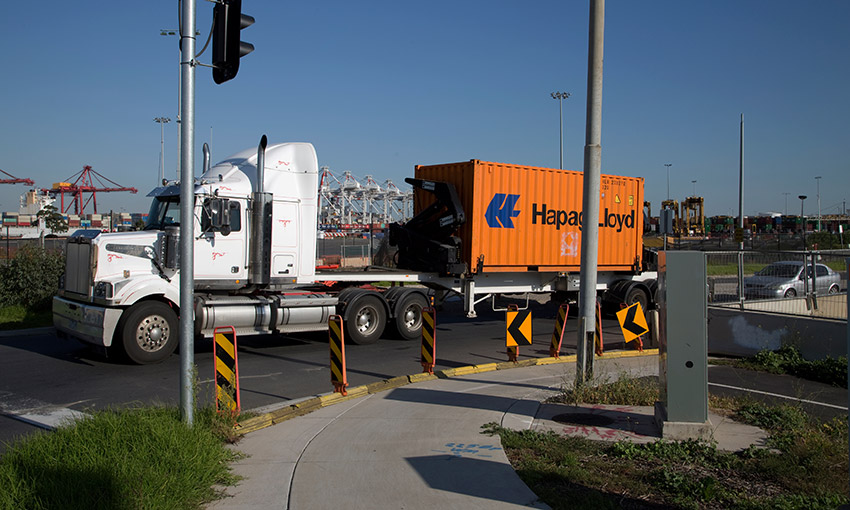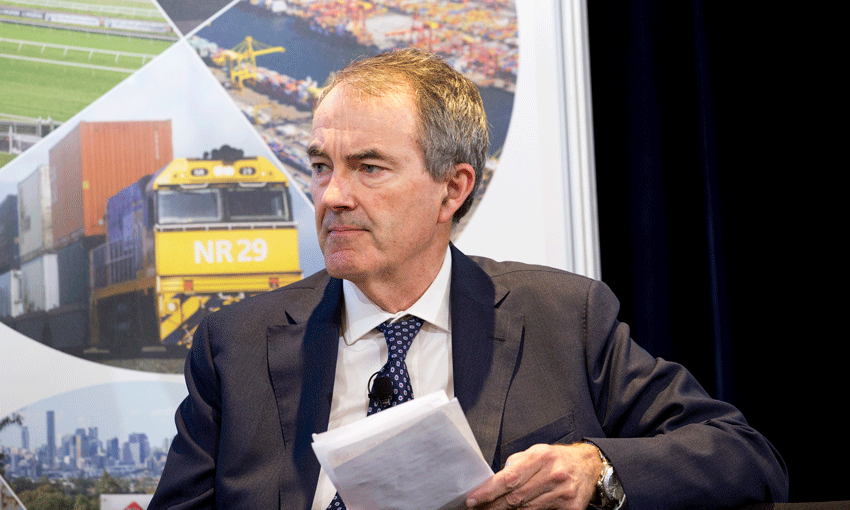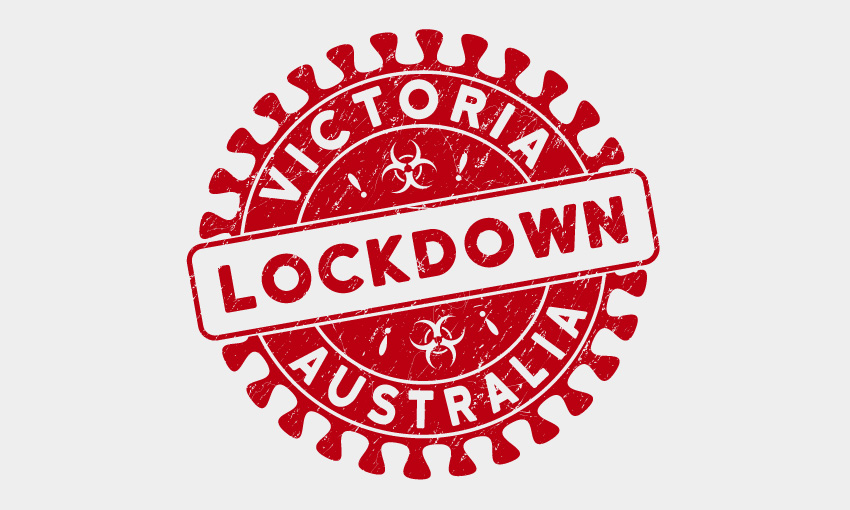STRICT measures aimed at halting the spread of COVID-19 in Victoria have forced changes on the state’s already under pressure logistics sector.
Face masks are compulsory and a curfew for the general public has been implemented between the hours of 8pm and 5pm in Metropolitan Melbourne, with those working outside these hours requiring a Permitted Worker Permit.
An official Stage-4 lockdown occurs from midnight on August 5, albeit many of the restrictions are already in place.
There already have been reports of the permit website crashing due to levels of online traffic.

Victorian Transport Association CEO Peter Anderson said he had been in discussion with the Victorian government “and have requested a number of modifications to the current form that would allow our industry sector to operate productively”.
“Currently, the government website for these forms is experiencing an overload that will be addressed today,” Mr Anderson said.
The situation in Victoria has become more acute with the latest round of testing confirming 725 new cases and 15 more deaths including a man in his 30s.
Allied Seafreight Logistics general manager Janice O’Connor said they while they were “lucky to be still working compared with other industries” they were still trying to figure out what would happen with some clients closing down.
“Many of our clients that receive direct cartage will be forced to close so they will rely on third party logistics service providers to assist in receiving and unpacking these containers as well as storing the freight,” she said.
“What then happens to all the containers arriving into Melbourne and the potential demurrage levied by the shipping lines for six weeks.
Ms O’Connor also noted the additional headache of industrial action at the Melbourne waterfront, with DPWA and the Maritime Union unable to agree on a new enterprise agreement.
Freight and Trade Alliance director Paul Zalai has spoken of the need for all imports to flow otherwise there would be around 300,000 containers over the next six weeks congesting wharves and impeding the delivery of all goods.
Mr Zalai said he noted Premier Daniel Andrews’ statement that warehousing and distribution centres in Melbourne would be limited to no more than two-thirds the normal workforce allowed onsite at any one time.
“We are seeking clarity on whether this extends to… broader import / export operations,” he said.
Port of Melbourne of Melbourne chief executive Brendan Bourke said they would draw upon the experience of the first lockdown that began in late March.
“We welcome the government’s continued recognition of the ports and freight supply chain as a vital element of the economy,” Mr Bourke said in a statement to customers.
“In March when restrictions were first announced, PoM, in conjunction with other key stakeholders, developed a supply chain initiative to locate near and on-port land available for storage of excess containers if required, and this work is ongoing,” he said.

“PoM is working with the freight and logistics sector to anticipate and prepare for any disruptions which may arise with some Stage 4 restrictions.”
Mr Bourke said the trade outlook was “difficult to assess”.
“At this stage it seems likely that trade will become increasingly dependent on the demand side response to the slowing economy,” he said.
“The PoM team is committed to continuing to move the goods essential to Victorian people and businesses, from medical equipment and supplies to the items on our supermarket shelves.”
Meanwhile at Geelong, which is still in a stage-3 lockdown, the port there is also preparing for any further COVID-related restrictions.
“We are well positioned to respond to the introduction of further COVID-19 related restrictions across regional Victoria,” GeelongPort CEO Brett Winter said.
“We have a range of risk controls and business continuity measures already in place, including our COVID Safe Pandemic Management Plan, allowing us to provide critical port services and facilitate ongoing sea trade.

“We have limited our operations to have only essential workers on site and all personnel accessing the port are required to wear face masks and adhere to COVID Safe plans. All non-essential and office based staff continue to work from home.”
Local stevedoring and transport providers have been able to adapt to the restrictions and operations have been unaffected to date.
“Recent changes bring new challenges, but we are in close contact with the authorities and are fully committed to supporting the port and local community through this phase,” Mr Winter said.
Looking ahead GeelongPort has a strong pipeline of projects to aid the region’s economic recovery.
“Whilst our first priority is to ensure the health and safety of our teams and local community, it is also vital that we don’t lose sight of the need for economic stimulus beyond the current crisis,” Mr Winter said.
The economic impact of the pandemic has taken a heavy toll on aviation, with Virgin Australia announcing it would cut about 3000 jobs and cull Tigerair Australia.
Deputy Prime Minister Michael McCormack said he was “saddened to hear of today’s job losses announced by Virgin Australia and our first thoughts are with all Virgin employees, as well as their families and those businesses relying on them for their livelihoods”.
“The Australian government acknowledges Virgin’s plan is an important step towards a sustainable, competitive aviation industry,” he said.
“The Australian government remains confident the current market-led solution will see Virgin Australia emerge in the best position possible.”
Australian Services Union assistant national secretary Linda White said it had worked with the ACTU and other unions for months to reduce the number of job losses and keep as many people in work as possible.
“Ultimately the company’s plan still sees a staggering number of job losses and cripples the industry,” Ms White said.
Transport Workers Union national secretary Michael Kaine said the union would work to support Virgin workers amid job losses.
“Today will be a difficult day for Virgin workers and we will support them in the days and weeks ahead as details emerge on job losses,” Mr Kaine said.

